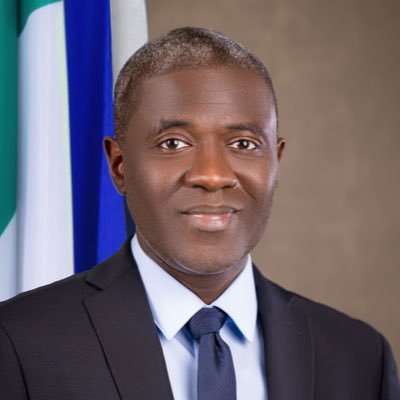At the 93rd Telecoms Consumer Parliament (TCP), Dr. Aminu Maida, the Executive Vice Chairman and CEO of the Nigerian Communications Commission (NCC), delivered a keynote speech emphasizing the urgent need to empower Nigerian telecom consumers through improved data transparency and consumer awareness. Held at the Communications and Digital Economy Complex Auditorium, the event centered on the theme: “Optimizing Data Experience: Empowering Consumers through Awareness and Transparency in a Consumer-Centric Telecom Industry.”
Dr. Maida highlighted the pivotal transformation of Nigeria’s telecommunications landscape over the past two decades. From the days of basic voice services, the sector has evolved to deliver high-speed data access, enabling Nigerians to embrace social media, e-commerce, online banking, and other digital services. The introduction of 3G, 4G, and now 5G technologies has expanded possibilities, laying the groundwork for innovations like smart cities, autonomous vehicles, and the Internet of Things. However, he stressed that as data consumption increases, driven by digital lifestyles, it is crucial to address growing concerns over data depletion and billing transparency.
Nigerians Leading in Digital Engagement
Dr. Maida presented insightful statistics that showcase Nigeria’s active digital engagement. With over 132 million internet users nationwide, Nigerians spend an average of 4 hours and 20 minutes on social media daily, surpassing the global average. This digital immersion is further evidenced by Nigeria’s daily data usage, which in 2024 reached an average of 336 gigabytes per second, a 39% increase over the previous year. Yet, the rising demand for data services is matched by consumer complaints about unexpectedly fast data depletion—a challenge, Dr. Maida noted, not unique to Nigeria but common across various countries.
Analyzing Data Usage: Why Data Depletion Seems Rapid
To address these issues, NCC directed mobile network operators (MNOs) and internet service providers (ISPs) to audit their billing systems. Although no major discrepancies were found, Dr. Maida explained that the perception of rapid data depletion largely stems from the increasing sophistication of devices and the complexity of tariff structures. For example, the shift to 4G and 5G networks, paired with high-definition devices, results in higher data consumption even for standard activities. Social media platforms and streaming services now consume significantly more data than in previous years; watching an hour of YouTube in high definition can use up to 5.4 gigabytes of data.
Consumer Education and Tariff Transparency Initiatives
In response to these challenges, NCC launched a Joint Industry Campaign on Consumer Awareness on Smarter Data Usage, involving radio, television, newspapers, and SMS. Through this initiative, consumers are educated on managing their data, including tips on device settings to track and limit data usage.
Dr. Maida also announced the Commission’s new Guidance on Tariff Simplification, mandating operators to provide clear and accessible information on data plans and pricing. This transparency, he argued, will empower consumers to make informed choices and better manage their data expenses.
Strengthening the Telecom Value Chain
Underscoring the importance of quality telecom services, Dr. Maida pointed out that service quality depends not only on MNOs but also on the collaboration of stakeholders across the telecom value chain. Tower companies, backhaul service providers, and other infrastructure partners play essential roles. To reinforce service accountability, NCC has updated its guidelines to hold each entity within this chain responsible for their part in delivering high-quality services.
Protecting Infrastructure and Enhancing Consumer Information
Acknowledging the challenges posed by vandalism and theft of telecom assets, Dr. Maida commended the recent Presidential Order by President Bola Ahmed Tinubu, designating telecom infrastructure as Critical National Information Infrastructure. This measure is expected to protect essential assets, ensuring the industry can continue to serve Nigerian consumers effectively.
Dr. Maida also announced the forthcoming Major Incident Reporting Guidelines and network coverage maps. These tools will require operators to inform consumers of significant service incidents and provide a transparent view of network strengths across the country, enabling consumers to make well-informed decisions.
Towards a Consumer-Centric Telecom Future
Dr. Maida concluded by reaffirming NCC’s commitment to fostering a telecom industry that values, informs, and empowers consumers. He urged participants at the Parliament to engage in open discussions aimed at shaping a consumer-focused telecom ecosystem in Nigeria.
“With sustained commitment,” he said, “we can build an ecosystem where every Nigerian enjoys the benefits of world-class telecommunications services.”
The keynote, received with widespread approval, set a hopeful tone for further discussions at the TCP as stakeholders and consumers alike united around the goal of creating a truly consumer-centric telecommunications industry.




